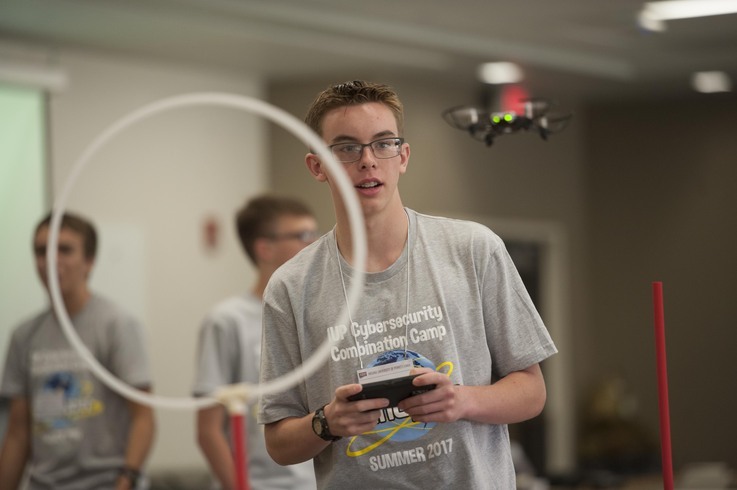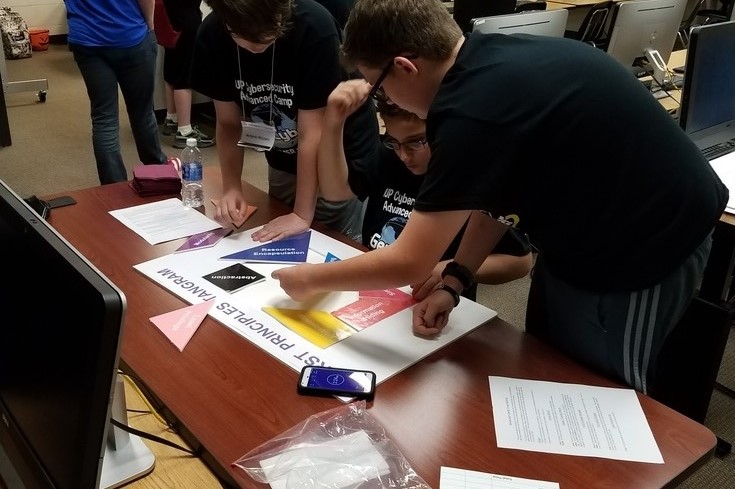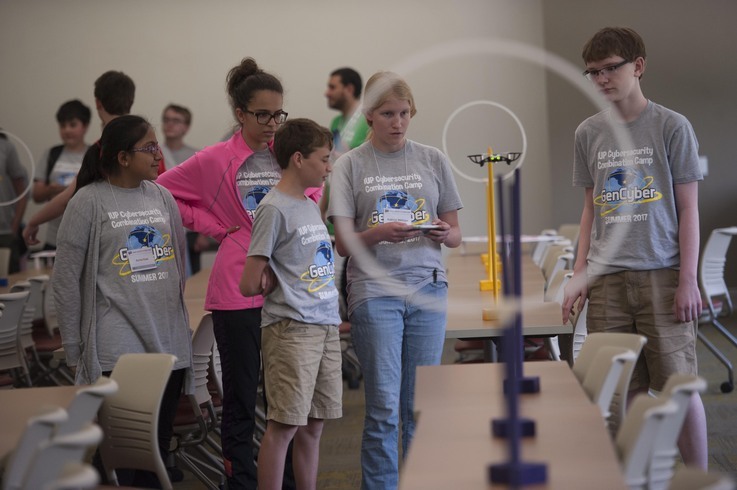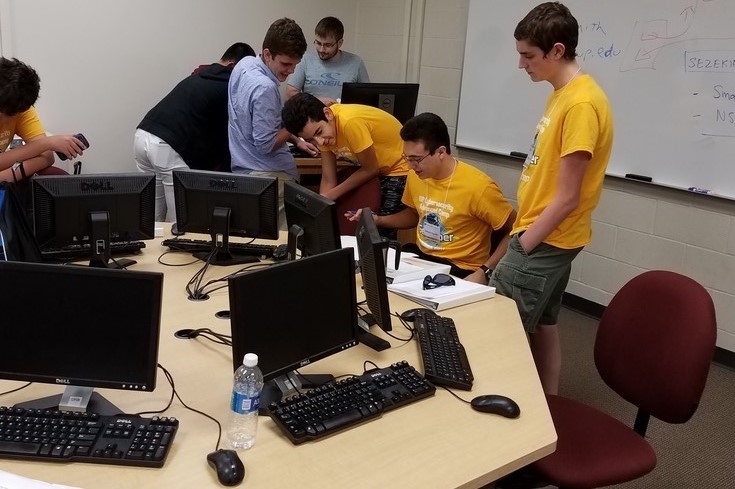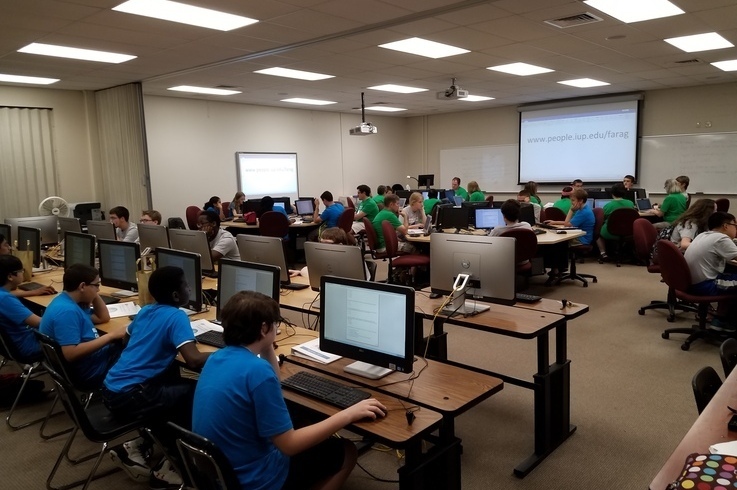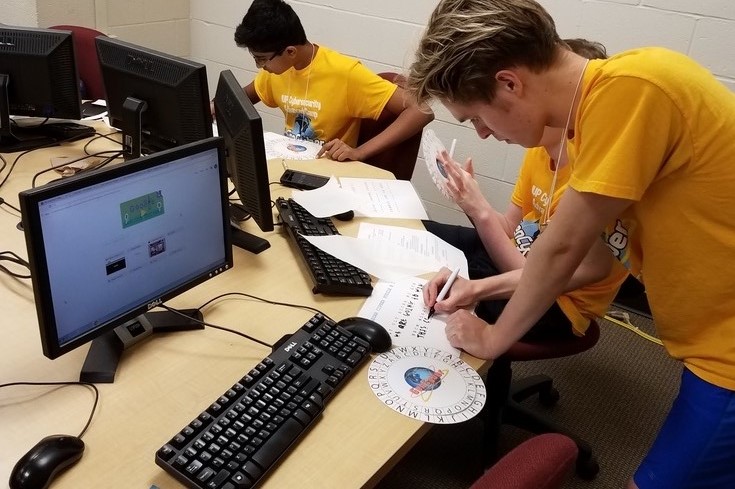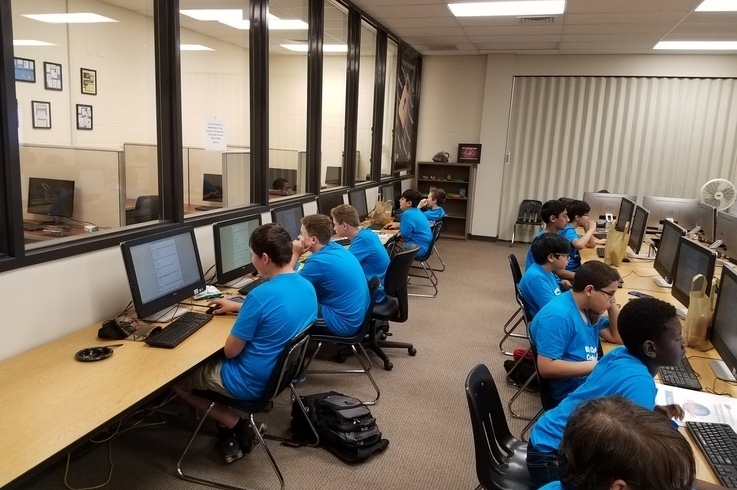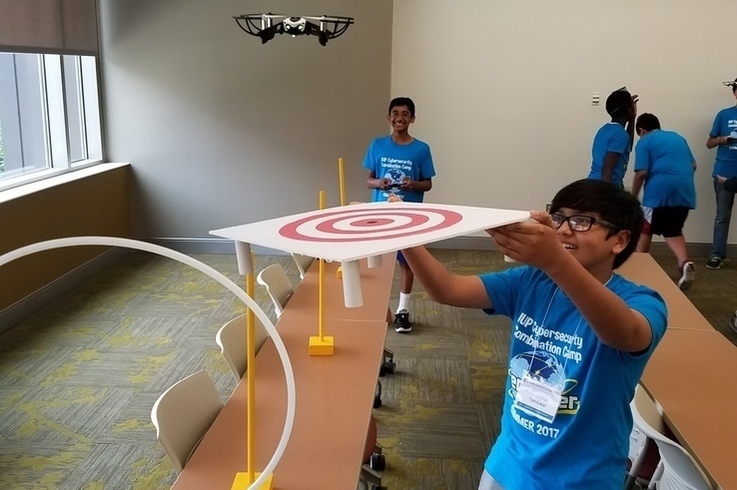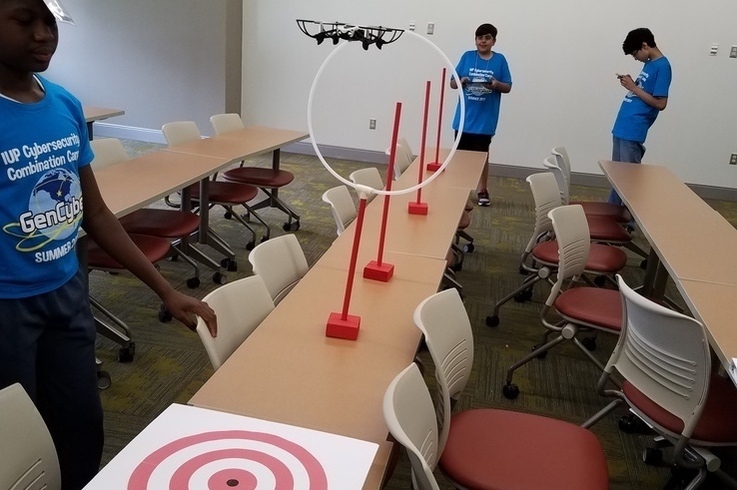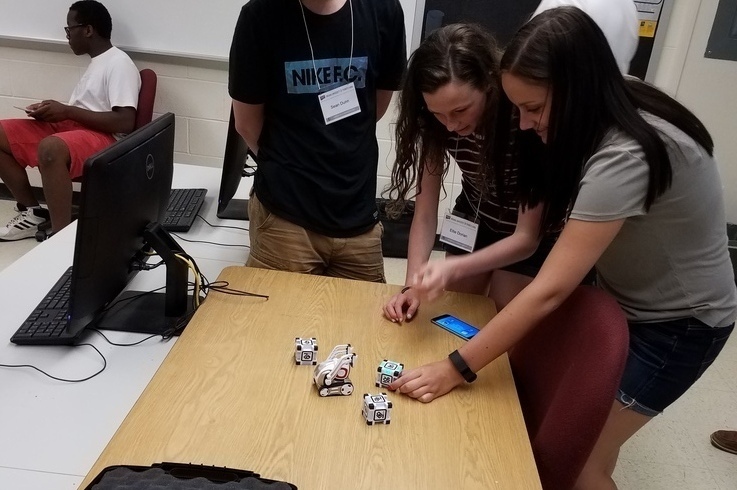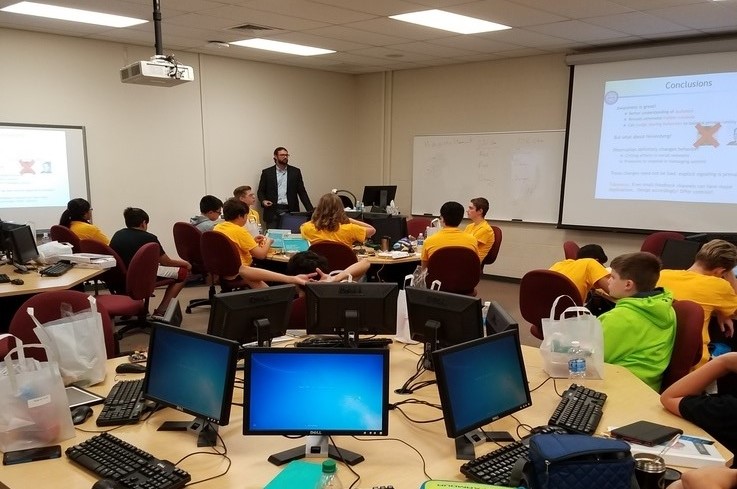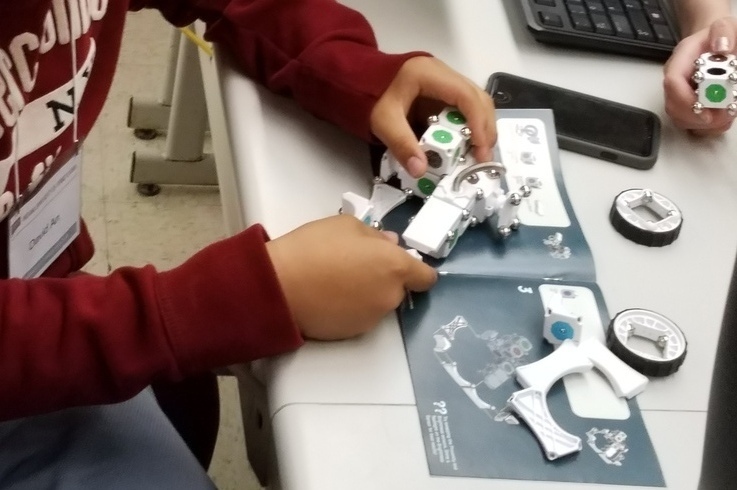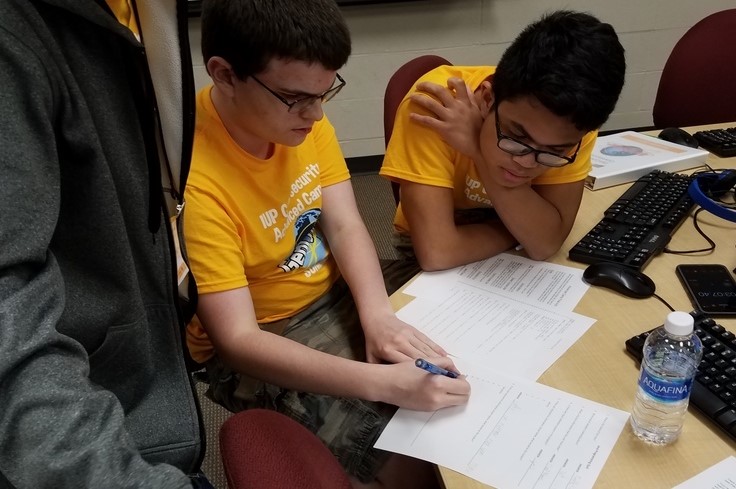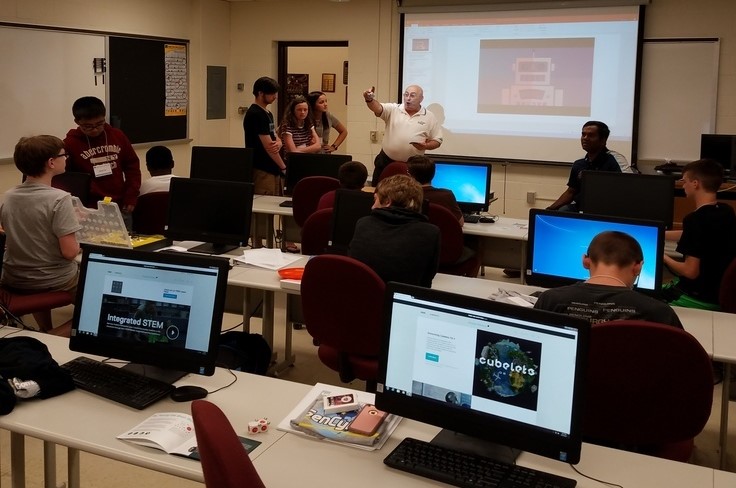IUP held the NSA/NSF-sponsored GenCyber summer camps in Pennsylvania in June 2017. Two free (no cost to participants), five-weekday day-camps were held for middle and high school students and teachers. The camps addressed essential security concepts in an interesting, novel, and multidisciplinary approach to foster interest in cybersecurity.
Below are participation advantages, camp materials, and information related to curriculum and modules. Please visit the current IUP GenCyber page for information on current programs.
Camp Documents and Photos
Combination Camp
Student Flyer | Teacher Flyer | Brochure | Schedule | Photo Gallery
Advanced Camp
Combination Camp (Middle and High School Teachers and Students)
- Camp Dates: June 12-16, 2017
- Combination camp's focus was on the fundamentals of cybersecurity and safe online behavior.
Advanced Camp (Middle and High School Students)
- Camp Dates: June 27-July 3, 2017
- Advanced camp was technically oriented and geared toward students with previous programming and/or cybersecurity experience and knowledge.
Participation Advantages: Combination Camp
- The camp was offered at no cost to participants.
- Free lunch and afternoon snacks were provided
Teacher Participation:
- A Chromebook was awarded to every participant.
- Act 48 credits were given.
- Free lunch and afternoon snacks were provided
- Mileage reimbursement was available for teachers with a 10 mile or more commute.
- Multidisciplinary cybersecurity teaching knowledge, skills, and modules were offered to be used in teachers' classrooms.
Student Participation:
- The camp was offered at no cost to participants
- Parrot Drone was awarded to each participant
- Instructions and mentorship from IUP faculty and other security experts.
- Valuable knowledge and skills that prepared students to pursue a very promising and growing career field.
Combination Camp Curriculum
Student Module:
- Introduction to Programming Module
- Robotic Artificial Intelligence Security Module
- Introduction to Networking Module
- Separating the Domains of Factual and Fake News Module
- Drone Technology Module
- Physical Security Module
- Object Oriented Programming Game Module
- Introduction to Network Security
- Networked Society
- Connected and Protected: Protecting your Privacy When Sharing Information Online Module
- Decision Making Simulation Module
Teacher Module:
- Transforming Your Curriculum: A Toolbox of Resources
- Using Social Media for Teaching and Reputation Management
- Implementing First Principles into Subject Areas
- Learning Through Teacher-Made Games and Activities
- Cyberbullying Tactics: Empowering Students to Take Charge
- Online/Tech-Based Engagement and Assessment
- Summarizing First Principles Relation to Subject Areas
- Using Google Apps to Share Ideas
- Networked Society
- Connected and Protected: Protecting your Privacy when Sharing Information Online Module
- Decision Making Simulation Module
Participation Advantages: Advanced Camp
Student Advantages:
- The camp was offered at no cost to participants.
- An Arduino Starter Kit was awarded to each participant.
- Free lunch and afternoon snacks.
- Instructions and mentorship from IUP faculty and other security experts.
- Valuable knowledge and skills that prepared students to pursue a very promising and growing career field.
Advanced Camp Curriculum
Student Module:
- Teaching the First Principles - Session 1 Middle School
- Teaching the First Principles - Session 2 Middle School
- Teaching the First Principles - Session 3 Middle School
- Teaching the First Principles - Session 1 High School
- Teaching the First Principles - Session 2 High School
- Teaching the First Principles - Session 3 High School
- Teaching the First Principles - Merged Session
- Drone Programming
- Java Programming
- Arduino Projects
- Digital Forensics
- Encryption
- Robots Programming
- Secure Coding
- Databases and Security
- Networking Basics
- Outdoor Activities
Questions
If you have any questions, contact grant PI or Co-PI at the information below:
Waleed Farag, Professor of Computer Science
Professor Farag's webpage
Fax: 724-357-7908
Phone: 724-357-2524
Mac Fiddner, Associate Professor of Political Science
Phone: 724-357-2290
Fax: 724-357-3810
